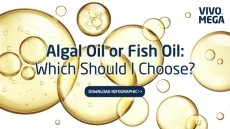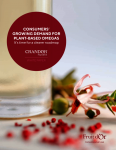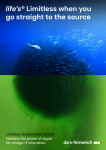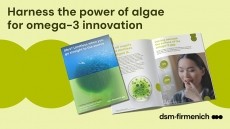Study spotlight supplements found to reduce side effects of COVID-19 vaccines

The researchers noted that supplement consumption was found to be associated with a reduced occurrence of diarrhoea and nausea following the end of the course of vaccination.
“At the start and end of the vaccination cycle, a significant correlation was observed between vaccine side effects and specific supplement intakes, demonstrating how supplementation can effectively assist vaccines in increasing host immune defences and reducing side effects,” the Italian researchers stress, adding their study is the first to investigate such associations.
Vaccine variation
The Covid-19 virus was a devastating global pandemic, characterised by an exacerbated inflammatory immune response following infection of the upper and lower respiratory tracts. The subsequent imbalance of pro-inflammatory cytokines, such as interleukin (IL)-1 and IL-6, can lead to cytokine release syndrome (CRS).
Following the publishing of the SARS-CoV-2 virus genetic sequence, scientists were able to rapidly develop a vaccine to stimulate the immune response to neutralise the virus. The vaccines utilised messenger RNA (mRNA) produced by BioNTech/Pizer and Moderna. A third viral vector vaccine released by AsraZeneca and the university of Oxford differed in its approach to stimulating the body’s response to the S protein of SARS-CoV-2.
It was established that following administration of these vaccines, the mRNA type was associated with a lower risk of developing adverse reactions when compared to the viral vector types. Subsequent analysis of associated post-vaccine symptoms noted that common adverse effects included pain, swelling, fever, vomiting, and diarrhoea.
It has been observed that nutrition plays an important role in COVID-19 disease prevention, as well as reducing its severity and duration. In addition, studies have recently noted that specific vitamins, minerals and nutrients including omega-3, can enhance the immune response following SARS-CoV-2 infection.
Considering these recent findings, the researchers sought to investigate the relationship between vaccination side effects and their duration, with dietary supplement intake.
Study
A questionnaire was administered to 776 Italian participants, aged between 18 and 86, to obtain personal and anthropometric data, as well as information on COVID-19 infection, vaccination, immune response and supplementation.
It was determined that there was a significant association between supplement consumption and vaccination side effects at the end of the course. Specifically, such associations were noted between supplement intake and occurrence of diarrhoea and nausea.
In addition, it was reported that at the start of the vaccination cycle there was significant associations between side effects and omega-3 and mineral supplementation, as well as with vitamin supplementation and the end of the cycle. It was highlighted that patients who supplemented with minerals (2.8%) were found to be more likely to have no side effects than those who did not take them (97.2%).
Further sex-dependent correlations were also noted at the end of the vaccination cycle, whereby males and prebiotic and probiotic intake proved significant, as well as females and vitamin D supplementation.
Mechanisms explained
“Micronutrient deficiency causes a reduction in antibody concentration, compromising natural killer (NK) cell cytotoxicity and cellular immunity and attenuating the response to vaccination. Therefore, micronutrients are indispensable not only for COVID-19 prevention and treatment, but also for the immune response that follows vaccination,” the report stresses.
It continues to explain the mechanism of action of the observed effects of minerals: “It was observed that zinc supplementation leads to beneficial effects in counteracting the SARS-CoV-2 infection, improving immune function, increasing IL-2, IL-6, and IFN-γ, and decreasing IL-10.”
In addition, the researchers highlight the powerful antioxidant actions of omega-3 and their potential oxidative stress regulatory action explaining the study findings.
However, it is important to note that further RCTs are required utilising higher levels of control to reduce the influence on bias on the results, and to investigate specific vaccination strains and supplement type to understand the mechanism of action further.
Source: Nutrients
https://doi.org/10.3390/nu15081807
“Effectiveness of Nutritional Supplements for Attenuating the Side Effects of SARS-CoV-2 Vaccines”
by Paola Gualtieri, Domenico Trombetta, Antonella Smeriglio, Giulia Frank, Angela Alibrandi, Giulia Leggeri, Marco Marchetti, Ilaria Zingale, Silvia Fanelli, Arianna Stocchi and Laura Di Renzo












